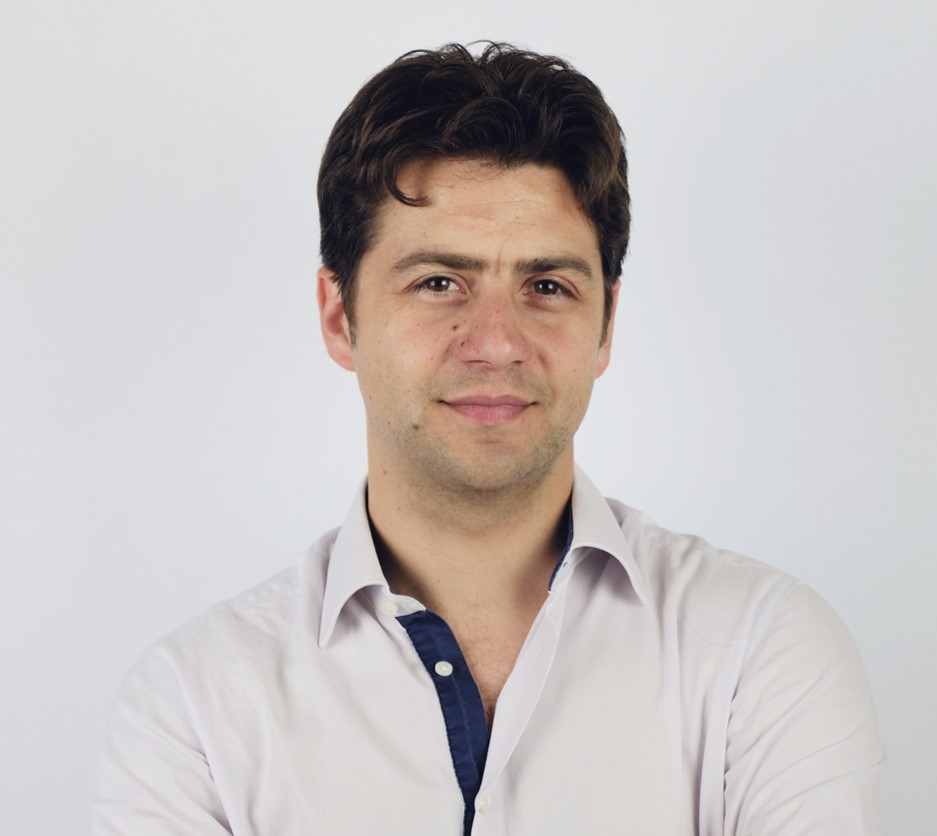FRAME : 1st workshop on Flexible Resource and Application Management on the Edge
In association with
The 30th International
ACM Symposium on
High-Performance, Parallel
and Distributed Computing
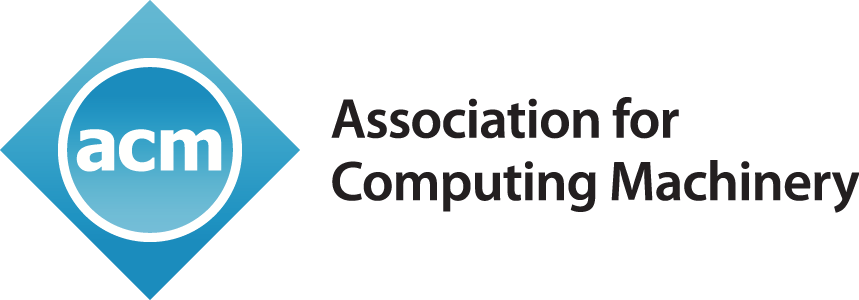
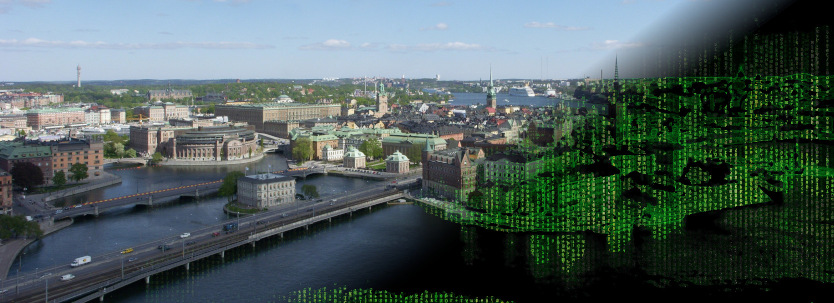
- June 25, 2021: Workshop
- Registration is now open!
- The Frame program is now online
- April 2, 2021: Submission of the abstract
- April 8, 2021 : Submission of regular papers (Final extended deadline)
Submission site will close on April 9, 2021 at 1:00 AM CEST - April 8, 2021 : Submission of posters and WIP papers (Final extended deadline)
Submission site will close on April 9, 2021 at 1:00 AM CEST - April 21 2021: Notification of paper acceptance/rejection
- April 28, 2021: Camera-ready paper submission
- May 14 : deadline for author videos
We are proud to introduce the 1st workshop on Flexible Resource and Application Management on the Edge to researchers, industry stakeholders, academics and PhD students.
Due to sanitary restrictions, the workshop will be held ONLINE
Cloud computing architectures and related paradigms are gaining an ever increasing degree of popularity and interest : they allow customers to “outsource” the management of physical resources by renting a variable amount of resources according to their actual needs, in a pay-per-use fashion.
Cloud and edge infrastructures can work together to fulfill requirements from a variety of applications, composing the so-called Cloud/Edge Continuum. Clouds must provide appropriate levels of performance to large groups of different users, whereas Edge resources act as a first layer of computing capacity that is closer to the user, with the purpose of reducing latency and increasing the exploitable portion of network bandwidth.
From a technological perspective, the scalability, interoperability, and efficient (de-)allocation of resources at the edge can enable a whole new set of scenarios. Interactive and time-sensitive services can be extended toward the edge, thereby closing the proximity gap with (potential) users. Data collection can happen within geographically/administratively bounded areas, ensuring compliance with data privacy and data retention policies. Furtherome, real-time data-driven decisions can be promptly taken on the spot, without the need to wait for data to travel to the Cloud and back. Improvement and innovation opportunities like these call for new solutions and theoretical frameworks.
FRAME 2021 aims at bringing together cloud and edge computing experts from academia and industry in order to identify new challenges for the management of resources in cloud-edge infrastructures, as well as to promote this vision toward academia and industry stakeholders.
FRAME proceedings will be published by ACM in the HPDC proceedings companion book and in the ACM Digital Library. Additionally, we are working to organise a Journal Special Issue dedicated to the topics of the workshop in the Springer Journal of Grid Computing. Authors of selected papers will be invited to submit extended versions of their work to the special issue.
- Optimization Techniques for Resources management at the Edge
- Monitoring of Resources and Applications at the Edge
- Efficient management of storage at the Edge
- Lightweight virtualization tools and techniques for Edge devices
- Privacy leakage and security analysis techniques in the Cloud/Edge continuum
- Novel Computing and Data Architectures for the Cloud/Edge continuum
- Efficient orchestration and placement of applications for the Cloud/Edge continuum
- Adaptive management of Applications in the Cloud/Edge continuum
- Application Models for the Cloud/Edge continuum
- Edge OS for autonomous data processing and hyper-distributed applications
- Fault detection and prevention in the Cloud/Edge continuum
- QoE/QoS modeling and assessment for the Cloud/Edge continuum
- ML/AI techniques and algorithms for Cloud/Edge orchestration
The workshop welcomes research papers, experience papers and tool presentations. Contributions can be:
- Regular papers (maximum 6 pages) should present innovative works whose claims are supported by solid justifications.
- Short papers (maximum 4 pages) should target position papers.
- Work-in-Progress / Virtual Posters (maximum 2 pages)
Papers should be formatted in the ACM Proceedings Style and should describe, in English, original work and new ideas that has not been published or submitted for publication elsewhere. See the ACM Prior Publication Policy for more details.
Proofs and additional material exceeding space constraints can be put into an appendix to be read at the reviewers' discretion. Proofs added into appendix will not be published in the proceedings. WIP/Virtual poster submissions are encouraged to additionally submit a draft of the slides/poster they are planning to present.
Each submitted paper will undergo a formal peer review process by at least 3 Program Committee members. Reviewing will be single blind.
At least one author of each accepted paper must register to the workshop by the early date (TBD) and present the paper.
FRAME proceedings will appear in the HPDC proceedings and in the ACM DL. A Journal Special Issue in the Springer Journal of Grid Computing is also being organized. Authors of selected papers will be invited to submit extended versions of their work to the special issue.
- In order to participate to the FRAME workshop, attendees shall register with the main HPDC
conference at the following link:
http://www.hpdc.org/2021/registration
PDF versions of papers shall be submitted electronically via HotCrp.com platform at the following link:
Please be sure to register your submission on HotCRP, upload the PDF of the paper, and freeze the submission before the deadline.
Program committee:
- Jörn Altmann, Seoul National University
- Marco Danelutto, University of Pisa
- Patrizio Dazzi, ISTI-CNR
- Emanuele Carlini, ISTI-CNR
- Karim Djemame, University of Leeds
- Ana Juan Ferrer, ATOS Research and Innovation
- Felipe Huici, NEC Laboratories Europe
- Gabriele Mencagli, University of Pisa
- Alberto Montresor, University of Trento
- Matteo Mordacchini, IIT-CNR
- Marcelo Pasin, University of Neuchâtel
- Tarik Taleb, Aalto University and Oulu University
- Domenico Talia, University of Calabria
- Paolo Trunfio, University of Calabria
- Konstantinos Tserpes, Harokopio University
- José Luis Vázquez-Poletti, Universidad Complutense de Madrid
- Massimo Villari, University of Messina
- Evangelos Psomakelis, ICCS-NTUA
- Saman Zadtootaghaj, TU Berlin
- Lorenzo Blasi, HPE
- Raffaele Perego, ISTI-CNR
- Bartłomiej Lipa, Bluesoft
- Maria Pateraki, ICCS-NTUA
- Yago Gonzalez Rozas, Plexus
- Ferran Diego Andilla, Telefonica
- Massimo Torquati, University of Pisa
- John Violos, ICCS-NTUA
Organizing committee
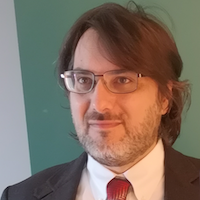
Massimo Coppola, ISTI-CNR, massimo.coppola@isti.cnr.it, General Chair
Massimo is a researcher at the ISTI-CNR. His research interests revolve around parallel and distributed platforms and programming, and their application to real world applications. They notably include Cloud computing and Federations, tools and performance models for structured parallel computing. He has been involved, as a proposer and participant, in a number of EU projects including lately H2020 EU projects Basmati, ACCORDION, TEACHING, and CHARITY.
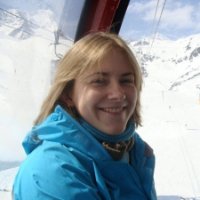
- Hanna Kavalionak, ISTI-CNR, hanna.kavalionak@isti.cnr.it, Program Co-Chair
Hanna is a post-doc researcher at the ISTI-CNR. She is currently working in cloud and edge resource indexing and discovery in the context of the H2020 ACCORDION european research project. Her research interests include peer-to-peer networks, data analyses solutions for indoor localization, and modeling and dependability analyses of complex cyber-physical systems of systems, in which she has published several papers in international conferences and journals.
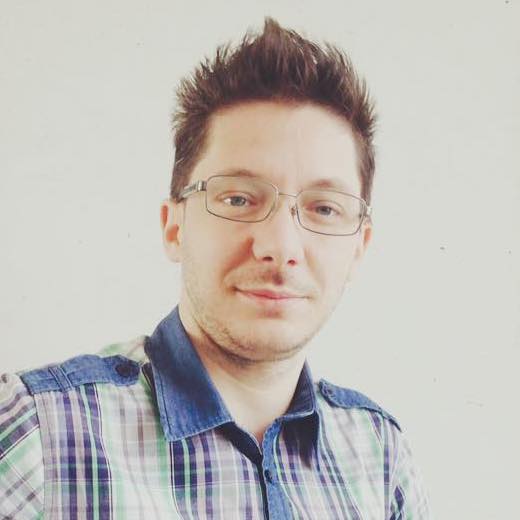
Luca Ferrucci, ISTI-CNR, luca.ferrucci@isti.cnr.it, Program Co-Chair
Luca is a post-doc researcher at the ISTI-CNR in Pisa since 2014. He attended and organized several workshops in the field of V&V supported by formal methods in 2014, 2015 and 2016. In the last years, his interests and research widely ranging from eGovernment tools and protocols for Certified electronic email and interoperability issues between different international standards, to research in domotics interoperability frameworks, as member of the SHELL italian national research project and, during last year, orchestration and resource management in Cloud and Edge cloud computing as a member of the H2020 ACCORDION european research project.
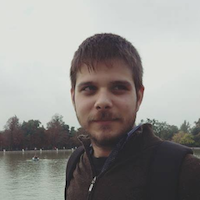
- Antonis Makris, Harokopio University, amakris@hua.gr, Publicity Chair
Antonios is currently a Ph.D. candidate at the Department of Informatics and Telematics of Harokopio University of Athens. His main research interests include distributed computing, Big data management and analysis, NoSQL database systems, high performance computing (HPC) and spatiotemporal analysis. He has participated in numerous EU funded and national projects including Fortissimo (FP7), Asylum (Ministry of Immigration Policy), Productive 4.0 (ECSEL), MASTER and SmartShip (H2020).
Keynotes
Keynote 1: Filling the gap between scientific research on Artificial Intelligence and Industry 4.0 needs
Speaker: Daniele Mazzei, University of Pisa , daniele.mazzei@unipi.it
Keynote Abstract: AI improves the data acquisition and analysis typical of the 4.0 paradigm, leading to the optimization of the industrial processes through fast, lightweight and well-performing algorithms. The academic research efforts on AI have followed a trend of development of complex and resource-intensive algorithms that require cloud-centric architectures while the industrial architectures for data acquisition are in most cases distributed, fragmented and resource-constrained. Recent researches have demonstrated the need of moving toward a decentralized use of AI where data analysis algorithms are executed directly on the machine side (``on the edge''). As this is the future, it becomes evident that a new generation of AI and ML experts, able to adapt these technologies to the industrial needs and to foster their role as the key players of the 4th industrial revolution, is needed. The talk will present the activities of the PLANET4 project that aims at filling the gap between scientific research on AI and its industrial application by designing an innovative blended course.
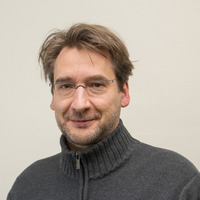
Keynote 2: Socio-Economic Aspects of Information Sharing in the Cybersecurity Ecosystem
Speaker: Jörn Altmann, Seoul National University, jorn.altmann@acm.org
Keynote Abstract: The cybersecurity ecosystem, which is essential for the adoption of cloud and edge computing, is changing as organizations started sharing cybersecurity information. This information, which includes threat data, countermeasures, and security breaches from a large number of computing devices and computing providers, allows for proactive defense actions against sophisticated intrusion attempts. However, there are two shortcomings. First, it is not clear what the value creation and value distribution among the stakeholders in the ecosystem is. Second, the ecosystem comprises already many cybersecurity providers, making it difficult for end-users (customers) to decide which service is the most suitable according to their requirements. To address these shortcomings, this talk defines, based on the constructs of the cybersecurity ecosystem, an economic model for evaluating the value creation and distribution among the stakeholders. In addition to this, a comprehensive set of key performance indicators for ranking cybersecurity providers are defined and, then, weighted based on the requirements of customers. Our initial results show that this approach helps improving the quality of services and helps aligning the values (i.e., utilities and profits) of stakeholders in the ecosystem and, with this, making the ecosystem more sustainable.
Session 1: Edge-Cloud Continuum Orchestration and Resource Management
Starting time 09:00 – Ending time 10:55
25th June - Program
(All times shown below are in CEST)
Welcome presentation (20 min)
Keynote 1: Filling the gap between scientific research on Artificial Intelligence and Industry 4.0 needs (30 min)
Speaker: Daniele Mazzei
Latency preserving self-optimizing placement at the Edge (20 Talk + 5 Q&A)
Luca Ferrucci (ISTI-CNR), Matteo Mordacchini (IIT-CNR), Massimo Coppola (ISTI-CNR), Emanuele Carlini (ISTI-CNR), Hanna Kavalionak (ISTI-CNR), Patrizio Dazzi (ISTI-CNR)
Inter-operability and Orchestration in Heterogeneous Cloud/Edge Resources: the ACCORDION vision
(20 Talk + 5 Q&A)
Ioannis Korontanis (Harokopio University of Athens), Konstantinos Tserpes (Harokopio University of Athens), Maria Pateraki (ORamaVR S.A. & National Technical University of Athens), Lorenzo Blasi (Hewlett Packard Italiana s.r.l.), John Violos (National Technical University of Athens), Ferran Diego (Telefónica Research), Eduard Marin (Telefonica Research), Nicolas Kourtellis (Telefonica Research), Massimo Coppola (ISTI-CNR), Emanuele Carlini (ISTI-CNR), Zbyszek Ledwoń (Orbital Knight), Przemysław Tarkowski (Orbital Knight), Thomas Loven (Plexus Tech), Yago González Rozas (Plexus Tech), Mike Kentros (ORamaVR S.A), Michael Dodis (ORamaVR S.A), Patrizio Dazzi (ISTI-CNR)
AI-Based Container Orchestration for Federated Cloud Environments (10 Talk + 5 Q&A)
Yodit Gebrealif (Seoul National University), Mohammed Mubarkoot (Seoul National University), Jörn Altmann (Seoul National University), Bernhard Egger (Seoul National University)
Session 2: Privacy and Security in Continuum and Edge Platforms
Starting time 11:15 – Ending time 12:35
Keynote 2: Socio-Economic Aspects of Information Sharing in the Cybersecurity Ecosystem (30 min)
Speaker: Jörn Altmann
Towards a Federated Learning Approach for Privacy-aware Analysis of Semantically Enriched Mobility Data (20 Talk + 5 Q&A)
Zaineb Chelly Dagdia (Université Paris-Saclay, UVSQ), Chiara Renso (ISTI - Institute of National research Council of Italy), Karine Zeitouni (Université Paris-Saclay, UVSQ), Nazim Agoulmine (Universite Paris-Saclay, Univ Evry)
A Methodological Perspective on Lawful Internet Surveillance (20 Talk + 5 Q&A)
Massimo Coppola (ISTI-CNR), Mauro Iacono (Università degli Studi della Campania Luigi Vanvitelli), Mauro Migliardi (Università degli Studi di Padova), Francesco Palmieri (Università degli Studi di Salerno)
Session 3: Application Viewpoint on Edge and Continuum Platforms
Starting time 13:45 – Ending time 15:15
An Osmotic Ecosystem for Data Streaming Applications in Smart Cities (20 Talk + 5 Q&A)
Emanuele Carlini (CNR-ISTI, National Research Council), Lorenzo Carnevale (University of Messina), Massimo Coppola (CNR-ISTI, National Research Council), Patrizio Dazzi (CNR-ISTI, National Research Council), Gabriele Mencagli (University of Pisa), Domenico Talia (University of Calabria), Massimo Villari (University of Messina)
Collaborative visual environments for evidence taking in digital justice: a design concept(20 Talk + 5 Q&A)
Ugo Erra (University of Basilicata), Nicola Capace (University of Basilicata), Nicola Lettieri (INAPP/University of Sannio), Ernesto Fabiani (INAPP/University of Sannio), Francesco Banterle (ISTI-CNR), Paolo Cignoni (ISTI-CNR), Patrizio Dazzi (ISTI-CNR), Jacopo Aleotti (University of Parma), Riccardo Monica (University of Parma)
Cloud and Data Federation in MobiDataLab (10 Talk + 5 Q&A)
Emanuele Carlini (National Research Council of Italy (ISTI-CNR)), Patrizio Dazzi (National Research Council of Italy (ISTI-CNR)), Francesco Lettich (National Research Council of Italy (ISTI-CNR)), Raffaele Perego (National Research Council of Italy (ISTI-CNR)), Chiara Renso (National Research Council of Italy (ISTI-CNR))
Data Science Workflows for the Cloud/Edge computing continuum (20 Talk + 5 Q&A)
Valerio Grossi (ISTI-CNR), Roberto Trasarti (ISTI-CNR), Patrizio Dazzi (ISTI-CNR)
Open discussion&Closing
Copyright © 2021 HPC-Lab CNR and HUA

